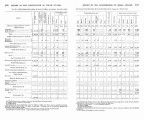| OCR Text |
Show THE ENDOWMENT OF INDIAN TEIBES. I cannot admit that there is any reason for the apprehensions which mny persons feel, that when the 111dians cease to be formidable, they d l be neglected. It is certaiuly desirable on all grounds,,not merely ta avoid the possibility of an occasionz~fla ilure in the provis~onfo r their mnts. but aiso for the sake of securing com~rehensiielless and consis-tmwy i l l the r~.rntmc.llot f rbr snl!iret, iilnr rile ~ ~ ~ O ~ ~ I I IfQorI [IbIeS s *~. en11 mihen and b;u~dsb e cnpit:rlizt-11.. I I I ~l )l:~cedi n trll&ff or tl~eirbt'l~etir, w t of the reach of accident or caprice. 'rheproceeds arisingfrom sales; an their reservations are from time to time dimi~~ishebdy authority of h,fo r the sake of securing a higher culture of the portions remaining, oclght, if the Indians are honestly treated in the transaction, to be suffi-deut to provide for all ordinary beneficial expenditures in behalf of tiibes and bands having lauds sec~iredto them by treaty. The reservations grauted heretofore have generally beenproportioned, and rightly so, to the needs of the Indians in a roving state, with hunting and fishing as their chief means of subsistence, which condi- 11o11 il~;plit.st he nc.;.ul~:ltiolo~f a t t r r i tur~rl lr c.xc:t.e~li~r&g bat coul~lp os-siioly h' eultir;lte~l. As rbrs c h a ~ ~tgo t~~ g r i c u l t~1~1ir)\iv~r,v rrP U I In~1 1d urin~itive;t t first. the^ r011tI to vontrnet the lill~itso f :ivt~lalo cclll~ntion. kTith proper adkiniitratire management the portions thus re6dered available for cessiou or sale can be so tllrowu together as in no way to impair the integrity of the reservation. Where this change has taken place, there can be no question ofthe expediency of such sale orcession. The Iudian Office has always favored this course, and notwithstanding the somewhat questionable character of some of the resnltiug transac-tions. arisins esneciallv oat of violent or fraudulentcombinations to nre-veot'a fair &e,;t cauhe confidently affirmed that the advantage of-the Indians has generally been subserved thereby. , For those tribes a6d bands wkich have no reservations secured to them by treaty, from which they can hope in the course of time to real-ize a civilination and improvement fund, provision will still require to be made by lam. Their right to endowment is none the less c1ea.r than t.he right of otber tribes whose fortune it was to deal with the Uuited States hy treaty, before Congress put an end to the treaty system, with its rnauy abuses and absurdities. We have received the soil from them, arrd we have extinguished their only means of subsistence. Nothing in the history of the United States justifies the belief that either Congress or the country will be wanting in justi'w or generosity in dealing with the necessities of a people who have been impoverished that we might be rich. Our national charity has sought theobjects of its benefactions at the ends of the earth : Americans will nerer be wanting in simple justice to helpless dependents at home. I have, therefore: no fear for the future of the Indiaus of this contiuent when once the arms of their resistance are laici down, and Iudian outragesare no longer reported to inflame the host,ility of the boftler States, and to mingledoubt and mis-givings with the philanthropic iuteutions of the charitable andhuma~le. With thcse remarks I respectfully submit the following detailed w-oonnt of the numbers. the locatiou. and the ~resent condition of each rrilta and irllporr;lnt bnl~d\ vi t l ) i l i ti16 ntlnli~~istr~r(i:voeII ~Io.If~ thI e Indian Uftice. TIIU account, \~ht tLcrs r;ttistical or descriprlve, l~:isI trru care- |



































































































